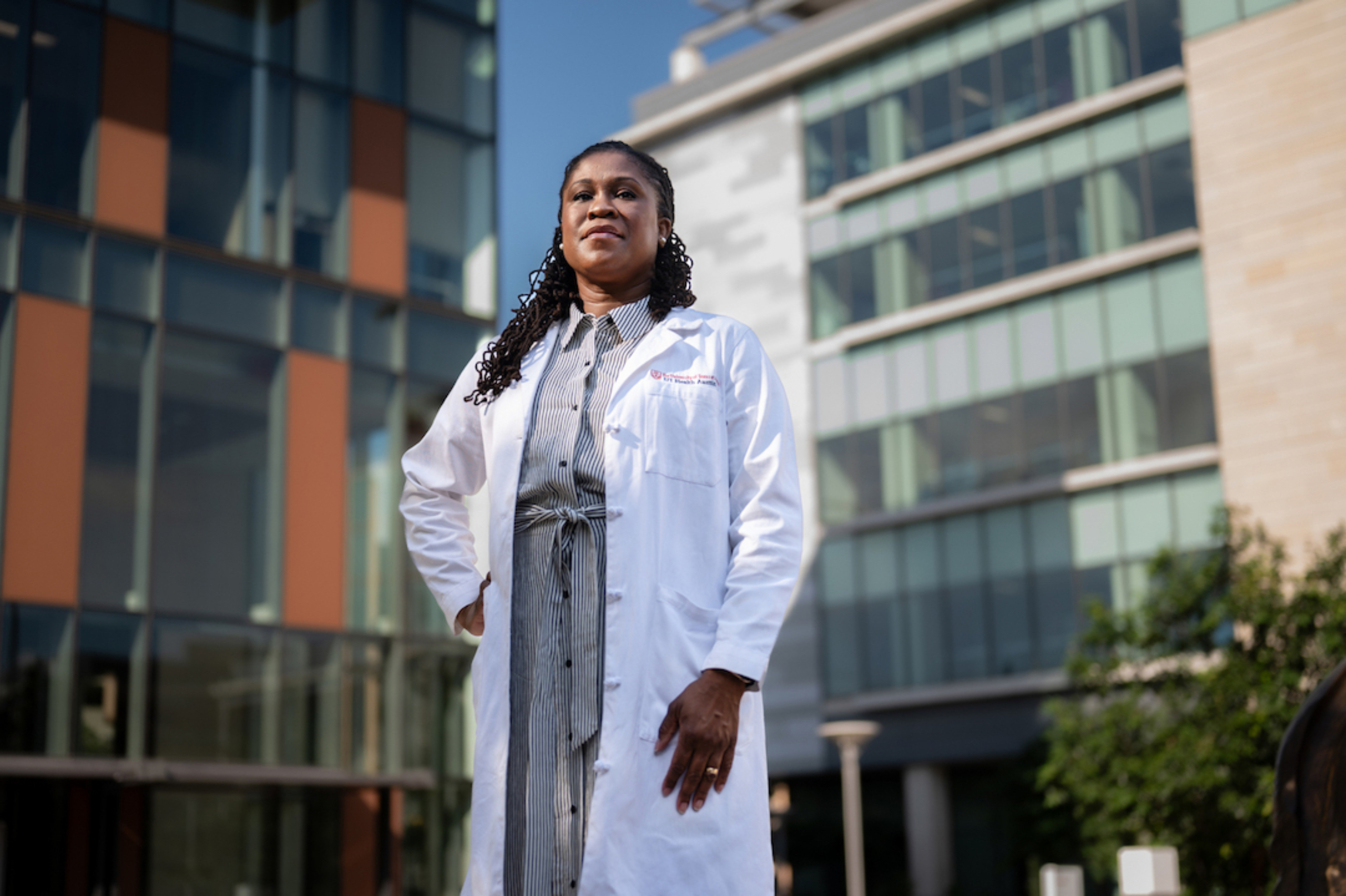Akua Afriyie-Gray, M.D., describes herself as someone who likes to build things.
And as an associate professor and division director for pediatric and adolescent gynecology in Dell Med’s Department of Women’s Health, she’s building something important: Central Texas’ first fellowship training program in pediatric and adolescent gynecology, which will expand opportunities for training and care that keeps children in need from falling through the cracks.

Akua Afriyie-Gray, M.D.
What is pediatric and adolescent gynecology, and how did you come to it?
I care for children and young teens who have conditions related to their reproductive system — whether those are menstrual issues, anatomical issues or something else. Typically, a patient of mine has seen their pediatrician or maybe their mom’s gynecologist. In some cases their pediatrician feels ill-equipped to treat gynecological issues, or perhaps doesn’t offer a particular surgery. And most OB-GYNs will not see patients who are under a certain minimum age, like 12 or 14. So if you have a nine-year-old who’s already hit puberty and needs attention for a bleeding disorder or has such severe pain during their periods that they’re missing school, who do they see?
During my training and first years of practice, I didn’t know that there was even an opportunity to do what I do, so I left residency and went on to do general obstetrics and gynecology for seven years. And during that time I was in a college town, so I tended to get a lot of young patients and late adolescent patients — but then my adult patients started to bring me their daughters and their little cousins. I really felt unprepared to fully manage the concerns that they had, so I started trying to find ways to learn more.
Is this a new specialty, or has demand increased, or both?
At the time that I went back to train and take on my first role in pediatric and adolescent gynecology, it was quite new across the country — there were maybe three fellowships that existed. And even now, it’s difficult to find many of us in Texas. I can probably count the number of pediatric adolescent gynecologists I know on one hand.
But if you really look back in the history of the field, you probably can trace it all the way back to the 1940s in Europe; there were a few individuals who were doing it in Germany and elsewhere, and the Journal of Pediatric Adolescent Gynecology came out in the late 1980s. So it’s been around, but has not been a widely known specialty.
How are you leading the way pediatric and adolescent gynecology is taking shape in Texas?
My goal has always been to improve reproductive care of young girls and adolescents. But further than that, a passion of mine is education: Since I got here, I’ve been working on putting together a fellowship in pediatric and adolescent gynecology. There just aren’t very many — I think only 50% of the people who applied last year matched.
I also serve on the board of directors for the Association of Professors of Gynecologists and Obstetrics, and I’m really interested in how we educate our physicians and our medical students about women’s health, and figuring out what the best ways are to do that: Is it simulation? Is it hands-on training? And as someone who wasn’t aware of this specialty during my training, I really want to find best way to improve the pathway for our learners to begin with — understanding the breadth and the depth of what we do so that they can make informed choices about what they want to do in their careers, and the ways they can contribute to the lives of women and children.